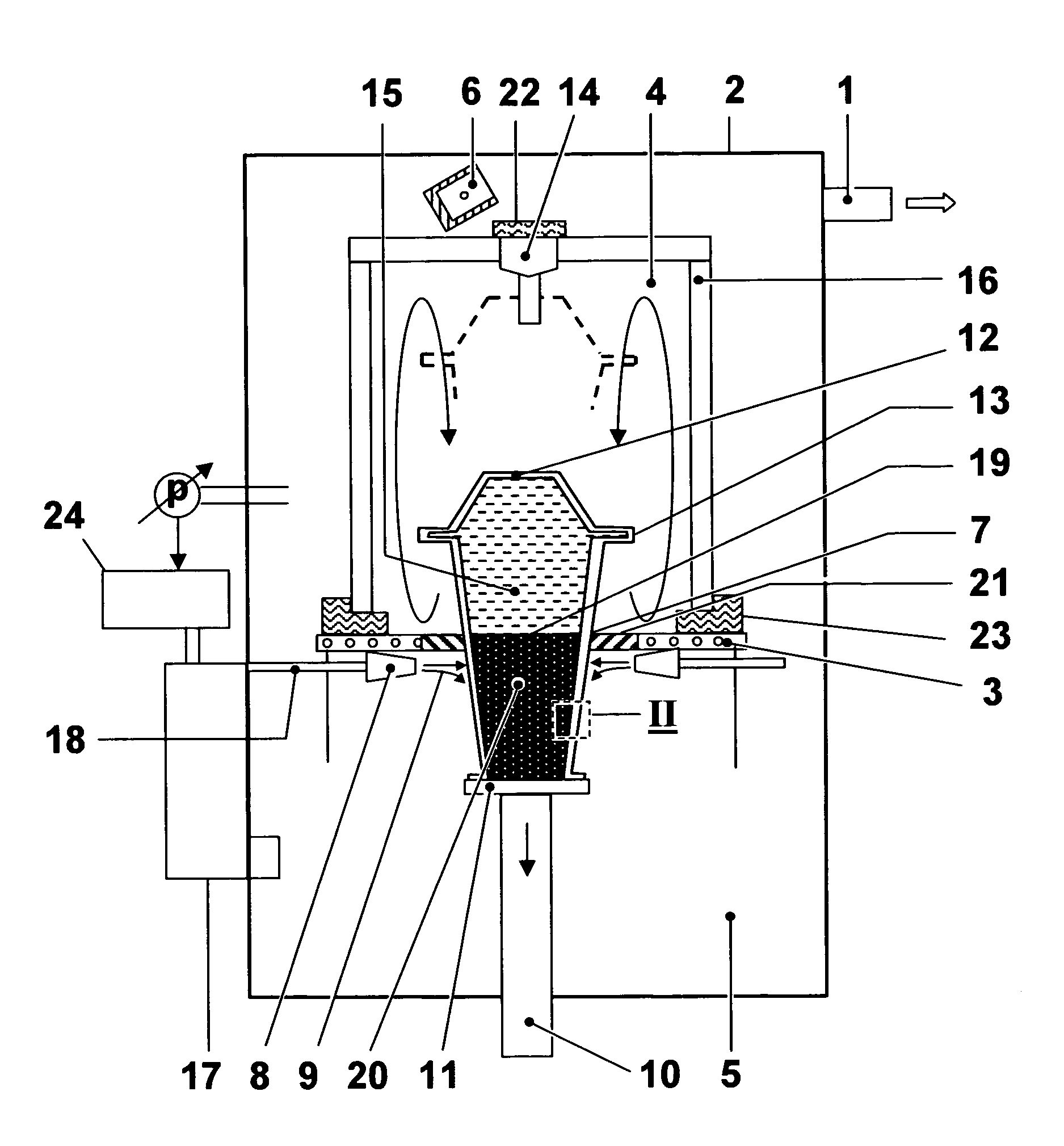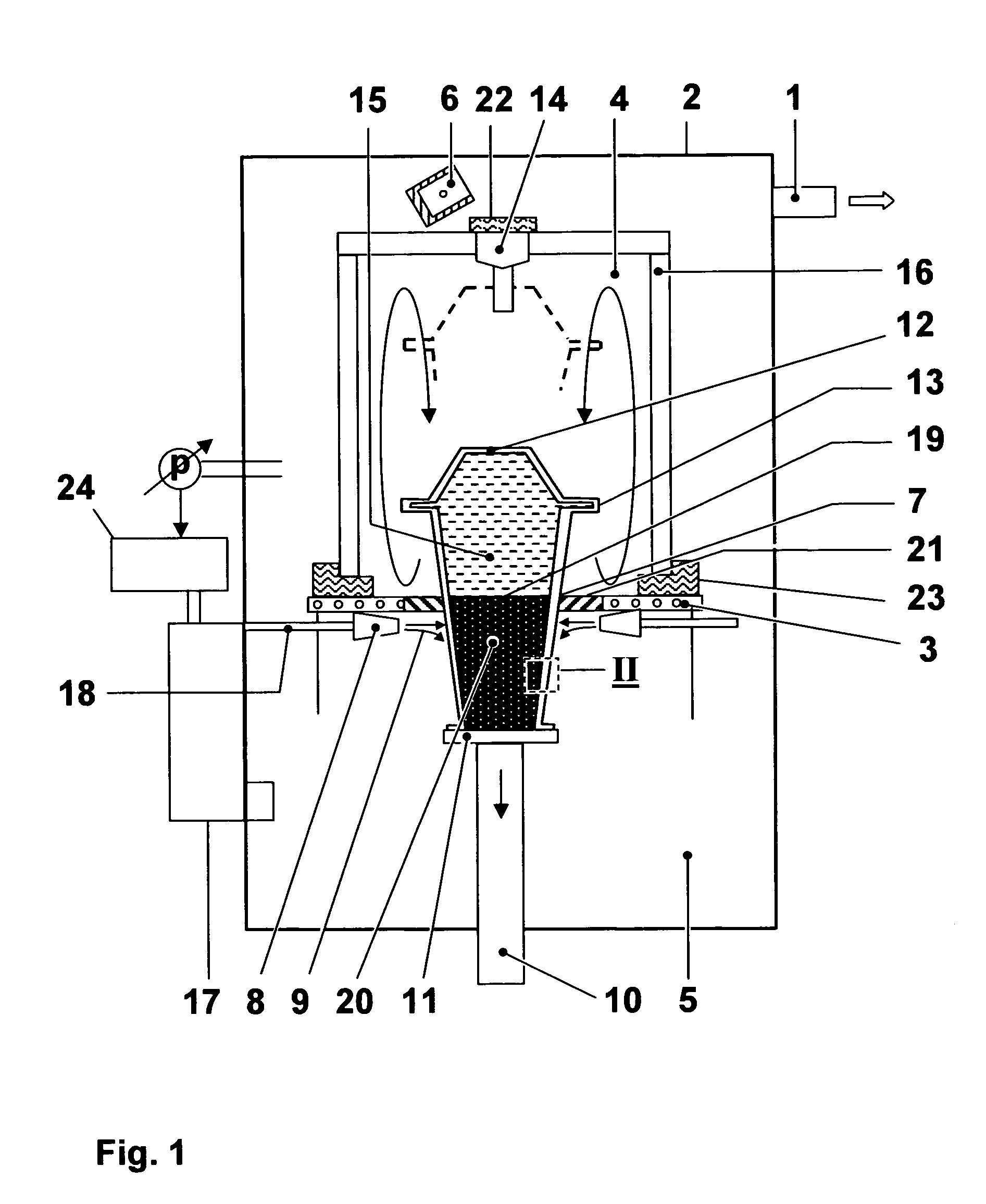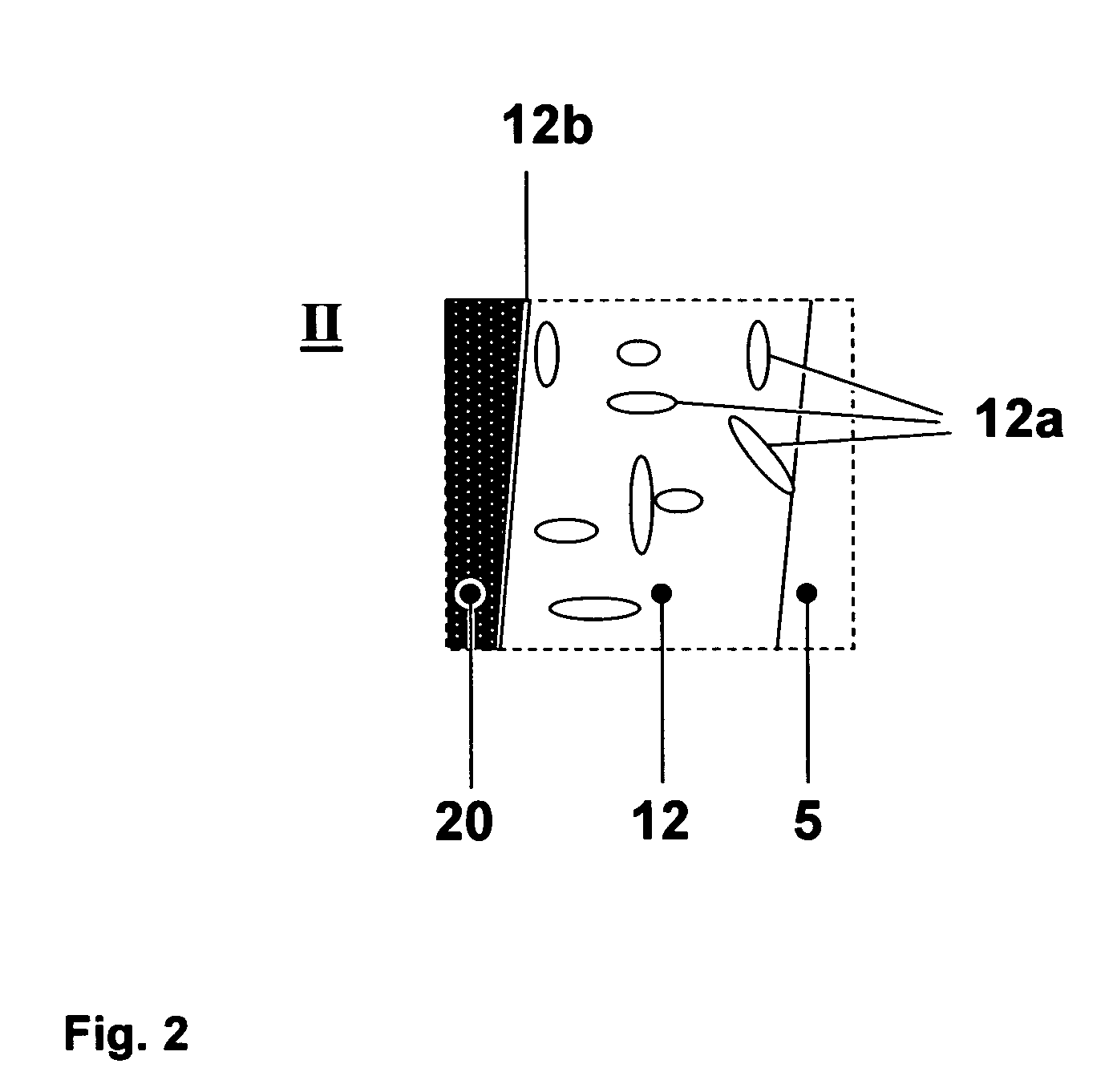Method for casting a directionally solidified article
a directionally solidified and article technology, applied in the direction of manufacturing tools, foundry patterns, moulding apparatus, etc., can solve the problems of ds and sx, stray grain formation, ds and sx, etc., to improve the thermal gradient, improve the heat extraction efficiency, and improve the effect of heat extraction efficiency
- Summary
- Abstract
- Description
- Claims
- Application Information
AI Technical Summary
Benefits of technology
Problems solved by technology
Method used
Image
Examples
Embodiment Construction
[0017]The invention of casting directionally solidified (DS) or single crystal (SX) articles such as blades or vanes or other parts of gas turbine engines is described in greater detail below with reference to an exemplary embodiment. In this case, FIG. 1 shows in diagrammatic representation an exemplary embodiment of an apparatus for carrying out the process according to the present invention. The apparatus shown in FIG. 1 has a vacuum chamber 2 which can be evacuated by means of a vacuum system 1. The vacuum chamber 2 accommodates two chambers 4, 5 which are separated from one another by a baffle (radiation and gas flow shield) 3, which may be extended with flexible fingers or brushes 21, and are arranged one above the other, and a pivotable melting crucible 6 for receiving an alloy, for example a nickel base superalloy. The upper one 4 of the two chambers is designed so that it can be heated. The lower chamber 5, which is connected to the heating chamber 4 through an opening 7 in...
PUM
| Property | Measurement | Unit |
|---|---|---|
| pressure | aaaaa | aaaaa |
| thickness | aaaaa | aaaaa |
| area | aaaaa | aaaaa |
Abstract
Description
Claims
Application Information
 Login to View More
Login to View More - R&D
- Intellectual Property
- Life Sciences
- Materials
- Tech Scout
- Unparalleled Data Quality
- Higher Quality Content
- 60% Fewer Hallucinations
Browse by: Latest US Patents, China's latest patents, Technical Efficacy Thesaurus, Application Domain, Technology Topic, Popular Technical Reports.
© 2025 PatSnap. All rights reserved.Legal|Privacy policy|Modern Slavery Act Transparency Statement|Sitemap|About US| Contact US: help@patsnap.com



